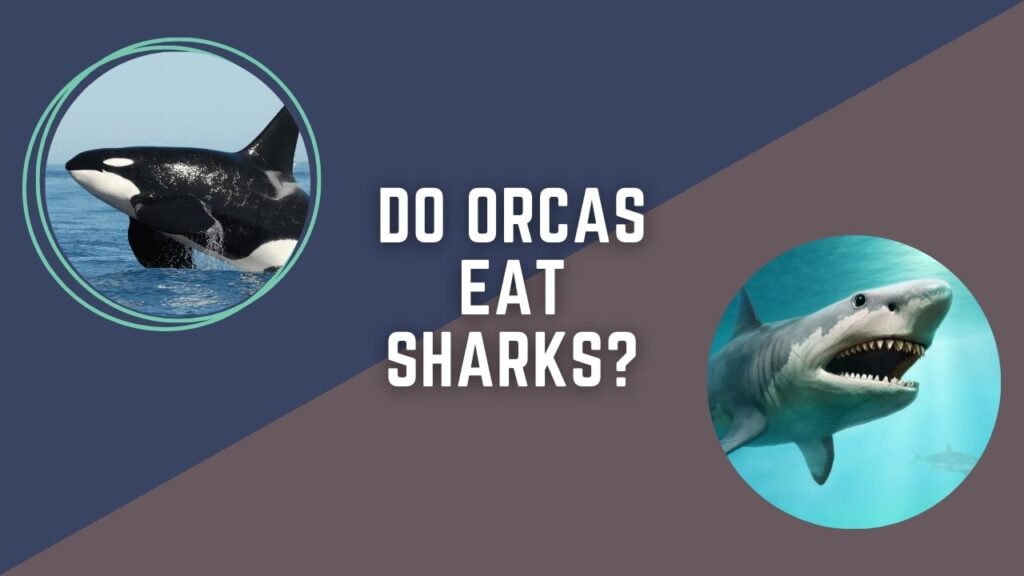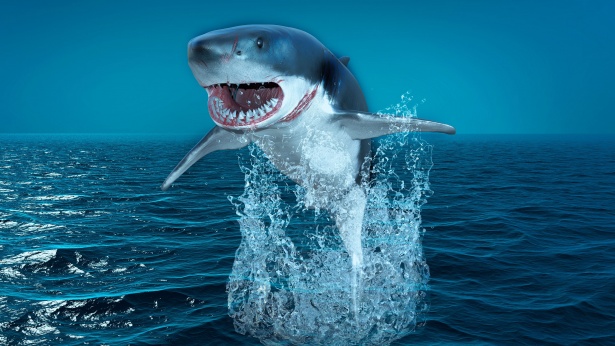Last updated on January 17th, 2024 at 06:00 pm

Do Orcas Eat Sharks? Yes, orcas do eat sharks. Orcas are apex predators and have been known to prey on a variety of shark species.
They have the ability to catch and eat sharks due to their strong hunting abilities and intellect.
One of the greatest predators in the ocean is the orca, sometimes referred to as the killer whale.
These clever creatures eat a variety of foods, such as fish, seals, and even sharks.
Their status as the top predators in the marine food chain is demonstrated by their capacity to hunt and eat sharks.
In order to better understand their connections and the effects they have on the marine ecosystem, let’s examine the fascinating relationship between orcas and sharks.
Gaining knowledge about the diet and behavior of orcas can help us better understand the dynamics of oceanic ecosystems.
Table of Contents
- 1 Orcas: The Apex Predators of the Ocean
- 2 Sharks: The Ocean’s Silent Predators
- 3 Orcas vs. Sharks: Clash of the Titans
- 4 Understanding Orca Diet
- 5 Hunting Strategies of Orcas
- 6 The Truth Behind Orca Predation
- 7 Conservation Concerns
- 8 Human Perception: Fear and Fascination
- 9 Frequently Asked Questions Of Do Orcas Eat Sharks?
Orcas: The Apex Predators of the Ocean
Apex predators like orcas occupy the top spot in the oceanic food chain.
They are fierce ocean lords due to their unmatched intelligence and synchronized hunting strategies.
Orcas have an amazing range of eating habits, from pursuing seals to taking on big whales.
See Also: Do Orcas Eat Seals? Discover the Hunting Habits
Sharks: The Ocean’s Silent Predators
Sharks, despite their reputation as lonely, silent predators, are essential to the upkeep of marine ecosystems.
Preying on fish and other marine life, they form a diverse group of animals that contribute to the delicate balance of the undersea world. [Do Orcas Eat Sharks?]
Orcas vs. Sharks: Clash of the Titans
A natural wonder is the interplay between orcas and sharks. There are reported cases of orcas battling sharks, which sheds light on the intricate relationships between these two formidable predators.
To fully comprehend the subtleties of these interactions, it is important to distinguish between different shark species.

Understanding Orca Diet
As top predators, orcas consume a variety of different kinds of prey, making them well-rounded eaters.
Their main sources of food are different kinds of fish and marine mammals like whales, sea lions, and seals.
These extremely clever animals are able to hunt and consume huge sharks, even great white sharks.
The fact that orcas can hunt and eat such large prey demonstrates their adaptability and status as one of the top predators in the ocean. [[Do Orcas Eat Sharks?]
See Also: Do Orcas Eat Penguins? The Surprising Truth Revealed
Hunting Strategies of Orcas
Orcas have complex hunting techniques and frequently collaborate with one another.
Comprehending these tactics illuminates the manner in which orcas handle interactions with sharks, exhibiting the intelligence and versatility that characterize them as top predators.
The Truth Behind Orca Predation
Do Orcas Eat Sharks? Apex predators known as orcas, or killer whales, have been seen scavenging sharks in the wild.
Because it’s a new way for orcas to prey on sharks, marine experts are particularly interested in this activity.
Orcas have evolved complex hunting techniques to pursue and eat sharks, according to case studies and other data.
Because orcas’ predation of sharks can affect both species’ population dynamics and behavior, this has important ramifications for marine ecosystems.
Comprehending the relationships among sharks and orcas is crucial to understanding the ocean’s bigger ecological dynamics.
The truth about orca predation offers fascinating new perspectives on the intricate interactions between these two dominant predators and their places in the marine food web.
See Also: Do Dolphins Attack Orcas? The Truth Revealed
Conservation Concerns
Sharks and orcas both face dangers to their survival as human activities continue to alter marine ecosystems.
The difficulties these species face must be addressed by conservation initiatives in order to maintain the health of the oceans for future generations. [[Do Orcas Eat Sharks?]
Human Perception: Fear and Fascination
Conservation attitudes are greatly influenced by how humans view sharks and orcas.
Public opinion is frequently shaped by curiosity and fear, which affects the degree of support for programs meant to preserve these magnificent animals.
Frequently Asked Questions Of Do Orcas Eat Sharks?
Do Orcas Eat Sharks In The Wild?
In the wild, orcas do indeed feed on sharks; they particularly hunt smaller species such as thresher sharks and great white sharks. Being opportunistic hunters, they would exploit any available prey in their surroundings.
What Is The Role Of Sharks In The Orca Diet?
Sharks are a staple of the orca diet, giving the top predators vital nutrition and nourishment. Because they are skilled hunters, orcas regulate the number of sharks in the ocean, helping to keep marine ecosystems in balance.
Are Orcas Threatened By The Decline Of Shark Populations?
Orcas may be impacted by the fall in shark numbers since it may reduce their food supply and intensify competition for scarce resources. The interdependence of marine life and the significance of maintaining healthy ecosystems are illustrated by this interaction.
How Do Orcas Hunt Sharks?
Orcas employ complex hunting strategies, such as well-coordinated attacks and tactical placement to overwhelm their target, to capture sharks. Because they are incredibly intelligent and versatile predators, they can successfully catch and eat sharks in their native environment.
Conclusion
Orcas are among the top predators in the water since they are known to feed on sharks. Predatory activity like this is essential to keeping marine ecosystems in balance.
For the sake of marine conservation efforts, it is crucial to comprehend how orcas and sharks interact. This knowledge can also shed light on the intricate dynamics of ocean life.

Mr. Das, a certified pharmaceutical scientist, holds a Bachelor of Science in Pharmaceutical Sciences and passionately contributes to dolphin conservation as a member of the committee in Bangladesh.


